OpenAI says hackers keep trying to use its services for cyber attacks
The AI developer has disrupted 20 attempts to use its tools for malicious purposes, saying there's been little impact to date


OpenAI has disrupted more than 20 attempts to use its models since the beginning of the year, but said the attempts to use its tools to disrupt elections or build malware appear to have largely failed — as had a targeted phishing attack against staff.
OpenAI described threat actors using ChatGPT to debug malware, writing content for fake social media accounts and creating disinformation articles, the company warned in a report.
"Activities ranged in complexity from simple requests for content generation, to complex, multi-stage efforts to analyze and reply to social media posts," the company added. "They even included a hoax about the use of AI."
The report comes amid growing concerns about the use of AI to spread disinformation during elections, as well as the possibility of hackers turning to AI generated content to improve or accelerate their spam and malware campaigns. Last month the US Department of Commerce called on AI providers to prove their systems can't be abused by hackers.
OpenAI has asked that the wider industry continue to work together to fight back against such attempts but repeatedly suggested that so far AI wasn't worsening the situation.
"Threat actors continue to evolve and experiment with our models, but we have not seen evidence of this leading to meaningful breakthroughs in their ability to create substantially new malware or build viral audiences," the report said.
Organized networks abuse OpenAI tools
OpenAI noted that it disrupted a "handful of networks" that were using its technology to generate social media content about elections in the US, Rwanda, India and the EU.
Sign up today and you will receive a free copy of our Future Focus 2025 report - the leading guidance on AI, cybersecurity and other IT challenges as per 700+ senior executives
That included an Iranian "influence operation" that OpenAI had written on before was using ChatGPT to generate social media posts and longer-form articles, which were published on websites posing as news outlets. Output focused on political content as well as posts about fashion and beauty, which OpenAI suggested was to look more authentic or to build a follower base.
In another example, ChatGPT accounts in Rwanda were generating election-related content to post on X.com, but OpenAI said that most of the posts identified as written by its models gained little interaction.
Indeed, beyond such dodgy activity being halted by OpenAI, the report added: "in these, we did not observe these networks attracting viral engagement or building sustained audiences."
Not a malware machine
The same was true for the potential to build malware using OpenAI's models. The company admitted that hackers were using its tools for debugging — including one known as STORM-0817 for "relatively rudimentary" Android malware — but they weren't able to create entirely new attack techniques.
Some threat groups used OpenAI's tools at the "intermediate" stage of their actions, such as to write posts for stolen social media accounts, rather than to directly hack someone. OpenAI noted that the attackers didn't do anything that couldn't have been achieved without AI.
That said, a China-based hacker known as SweetSpecter not only used OpenAI tools for research, scripting support, and more, but it also used the tools to attempt spear phishing against OpenAI staff, targeting their personal and corporate emails. That campaign was unsuccessful, OpenAI said.
The SweetSpecter hackers posed as ChatGPT users looking for support from the employees. The emails included a malicious attachment — ironically named "some problems.zip" — that includes a file that did list errors in the chatbot but also ran the "SugarGh0st RAT" malware in the background.
RELATED RESOURCE

"The malware is designed to give SweetSpecter control over the compromised machine and allow them to do things like execute arbitrary commands, take screenshots, and exfiltrate data," OpenAI said.
Though the hackers made use of OpenAI's technologies to target the company's staff, the reverse was also true: OpenAI's security teams used ChatGPT to translate, categorize and summarize communications from the attackers.
"As our models become more advanced, we expect we will also be able to use ChatGPT to reverse engineer and analyze the malicious attachments sent to employees," the company added.
Freelance journalist Nicole Kobie first started writing for ITPro in 2007, with bylines in New Scientist, Wired, PC Pro and many more.
Nicole the author of a book about the history of technology, The Long History of the Future.
-
 Cyber resilience in the UK: learning to take the punches
Cyber resilience in the UK: learning to take the punchesColumn UK law now puts resilience at the centre of cybersecurity strategies – but is legislation simply catching up with enterprise understanding that resilience is more than just an IT issue?
-
 CISPE claims European Commission gave Broadcom a ‘blank cheque to raise prices, lock-in, and squeeze customers’ with VMware deal
CISPE claims European Commission gave Broadcom a ‘blank cheque to raise prices, lock-in, and squeeze customers’ with VMware dealNews Cloud providers have issued a formal response to the General Court of the European Union after the Commission defended its approval of the deal
-
 OpenAI turns to red teamers to prevent malicious ChatGPT use as company warns future models could pose 'high' security risk
OpenAI turns to red teamers to prevent malicious ChatGPT use as company warns future models could pose 'high' security riskNews The ChatGPT maker wants to keep defenders ahead of attackers when it comes to AI security tools
-
 Some of the most popular open weight AI models show ‘profound susceptibility’ to jailbreak techniques
Some of the most popular open weight AI models show ‘profound susceptibility’ to jailbreak techniquesNews Open weight AI models from Meta, OpenAI, Google, and Mistral all showed serious flaws
-
 'It's slop': OpenAI co-founder Andrej Karpathy pours cold water on agentic AI hype – so your jobs are safe, at least for now
'It's slop': OpenAI co-founder Andrej Karpathy pours cold water on agentic AI hype – so your jobs are safe, at least for nowNews Despite the hype surrounding agentic AI, OpenAI co-founder Andrej Karpathy isn't convinced and says there's still a long way to go until the tech delivers real benefits.
-
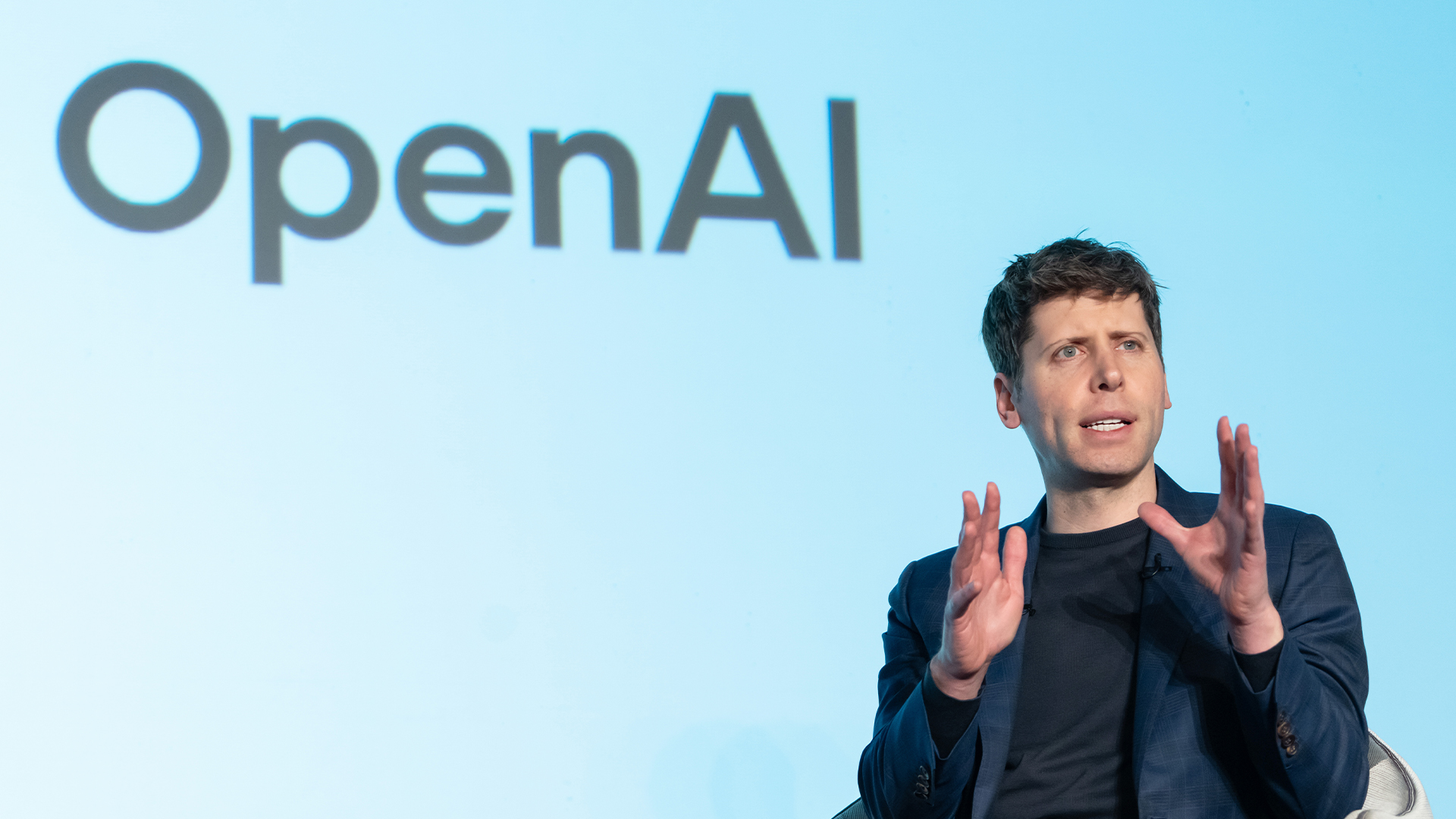 OpenAI signs another chip deal, this time with AMD
OpenAI signs another chip deal, this time with AMDnews AMD deal is worth billions, and follows a similar partnership with Nvidia last month
-
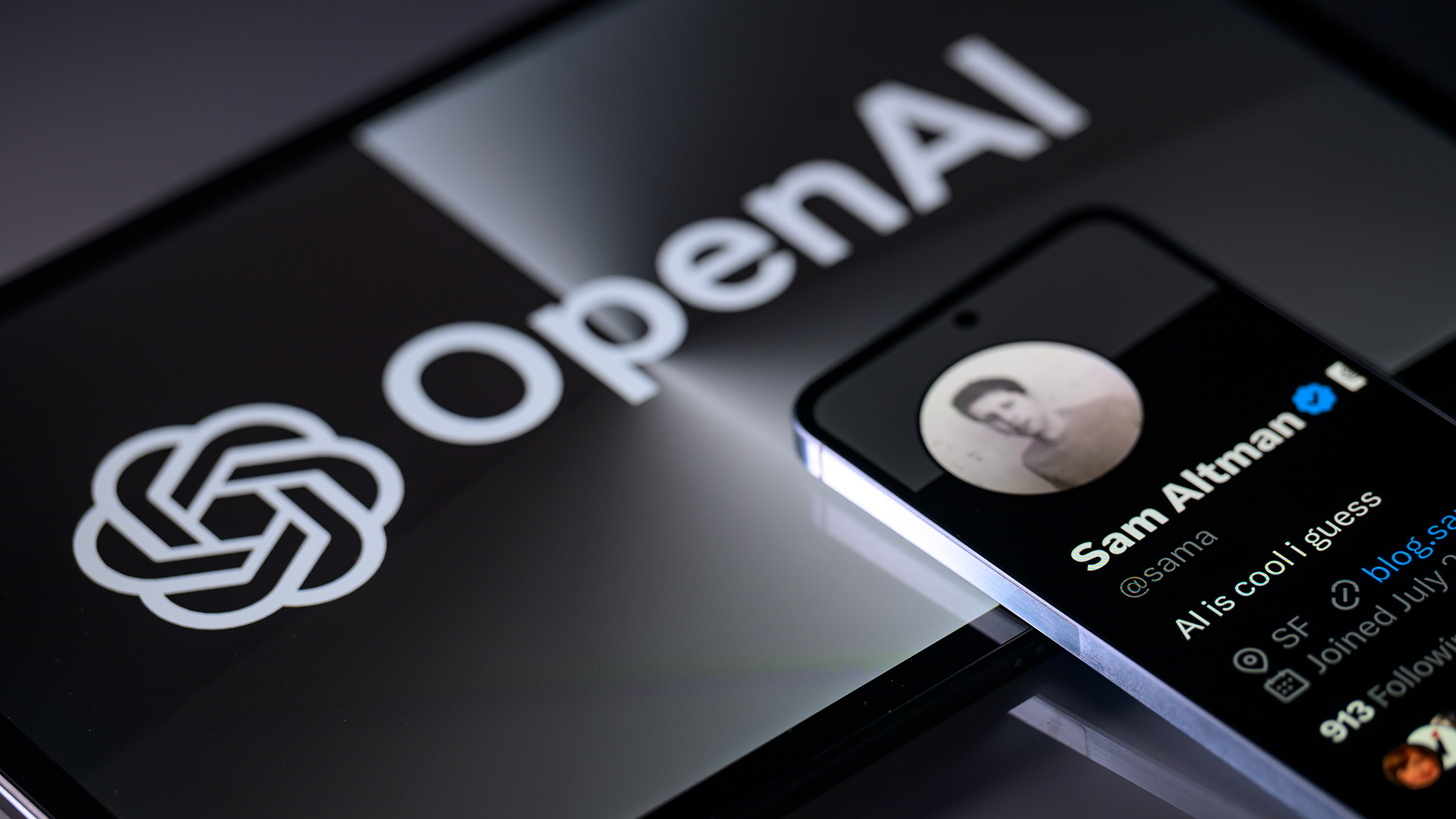 OpenAI signs series of AI data center deals with Samsung
OpenAI signs series of AI data center deals with SamsungNews As part of its Stargate initiative, the firm plans to ramp up its chip purchases and build new data centers in Korea
-
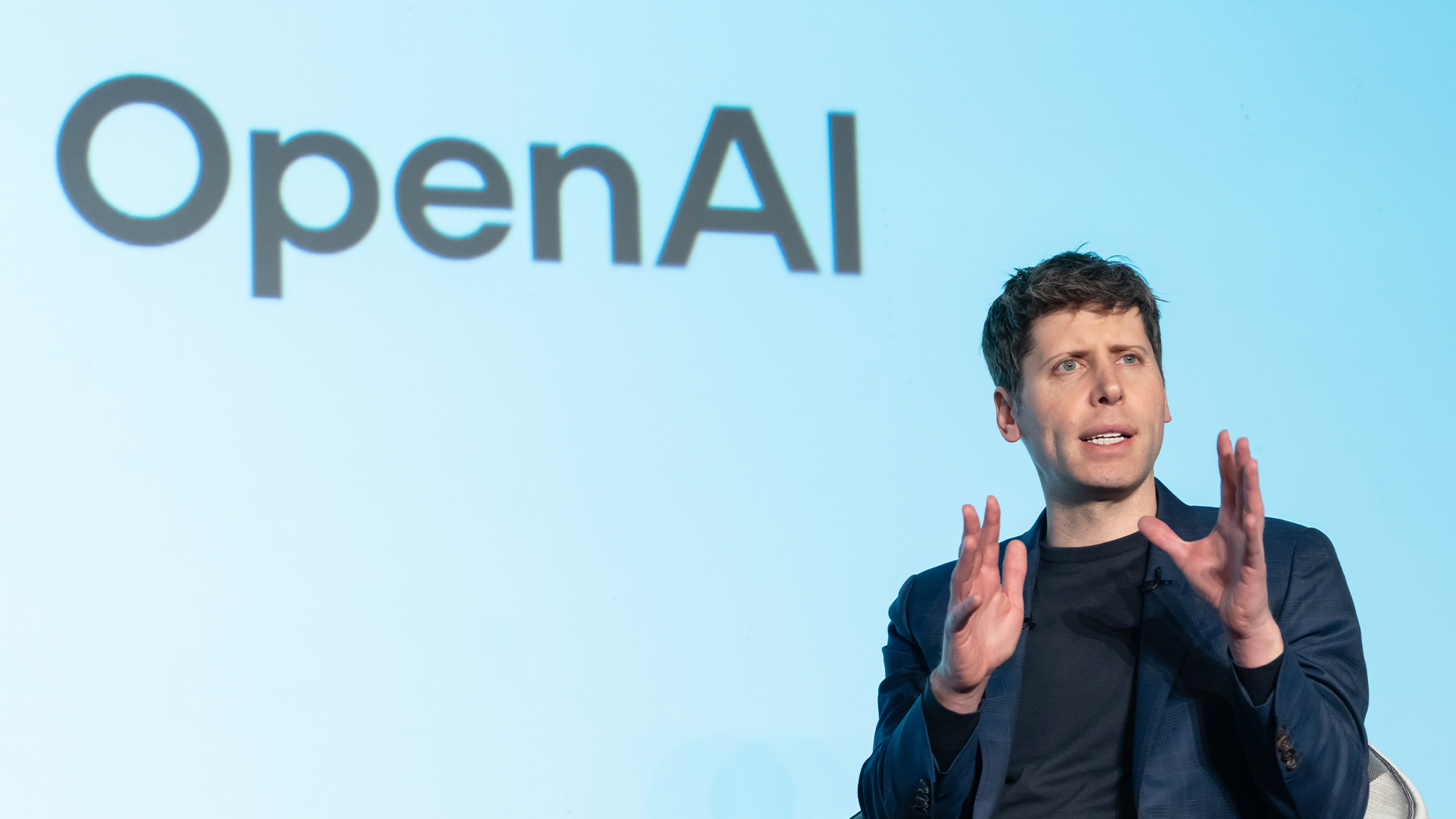 Why Nvidia’s $100 billion deal with OpenAI is a win-win for both companies
Why Nvidia’s $100 billion deal with OpenAI is a win-win for both companiesNews OpenAI will use Nvidia chips to build massive systems to train AI
-
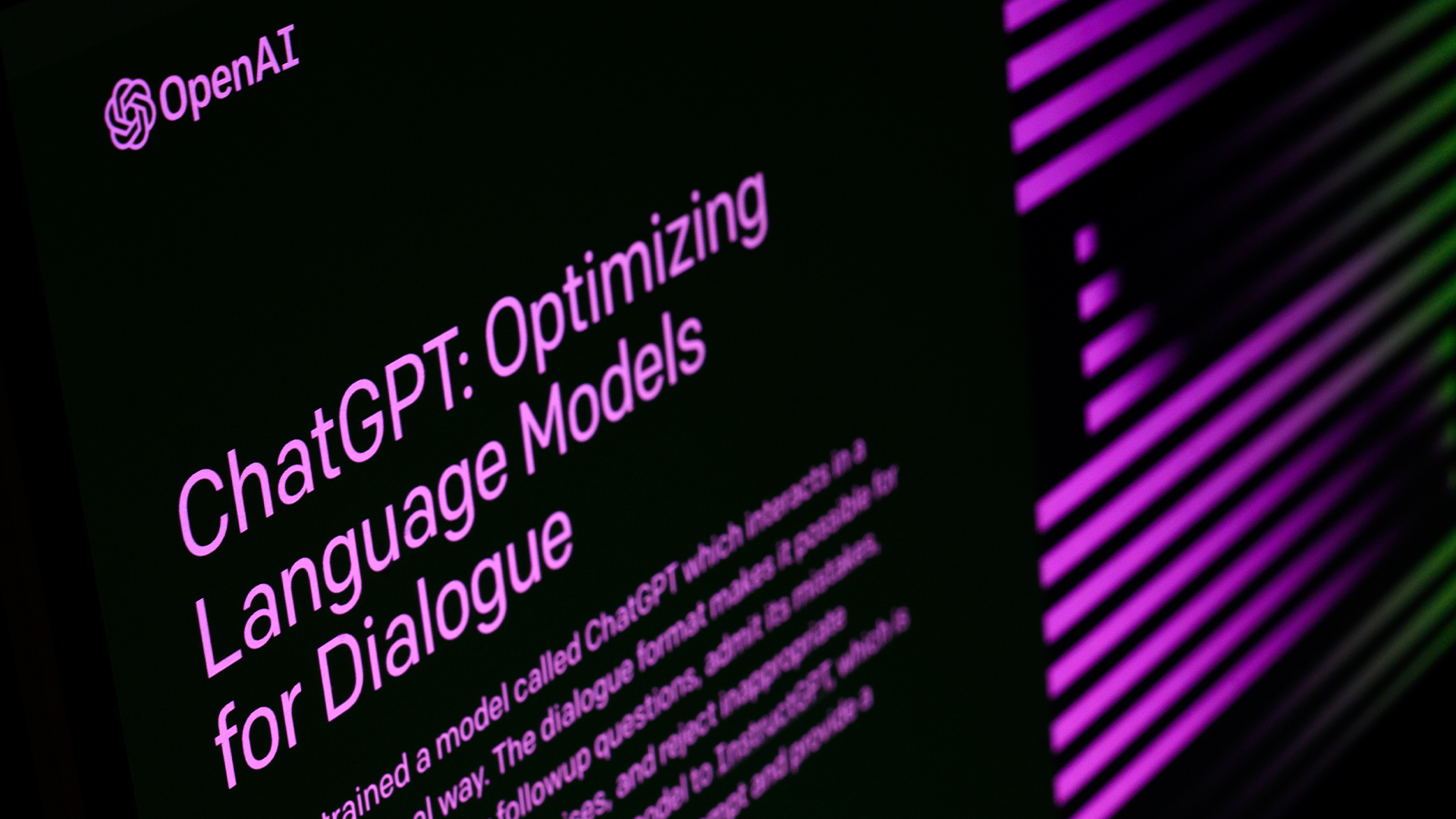 OpenAI just revealed what people really use ChatGPT for – and 70% of queries have nothing to do with work
OpenAI just revealed what people really use ChatGPT for – and 70% of queries have nothing to do with workNews More than 70% of ChatGPT queries have nothing to do with work, but are personal questions or requests for help with writing.
-
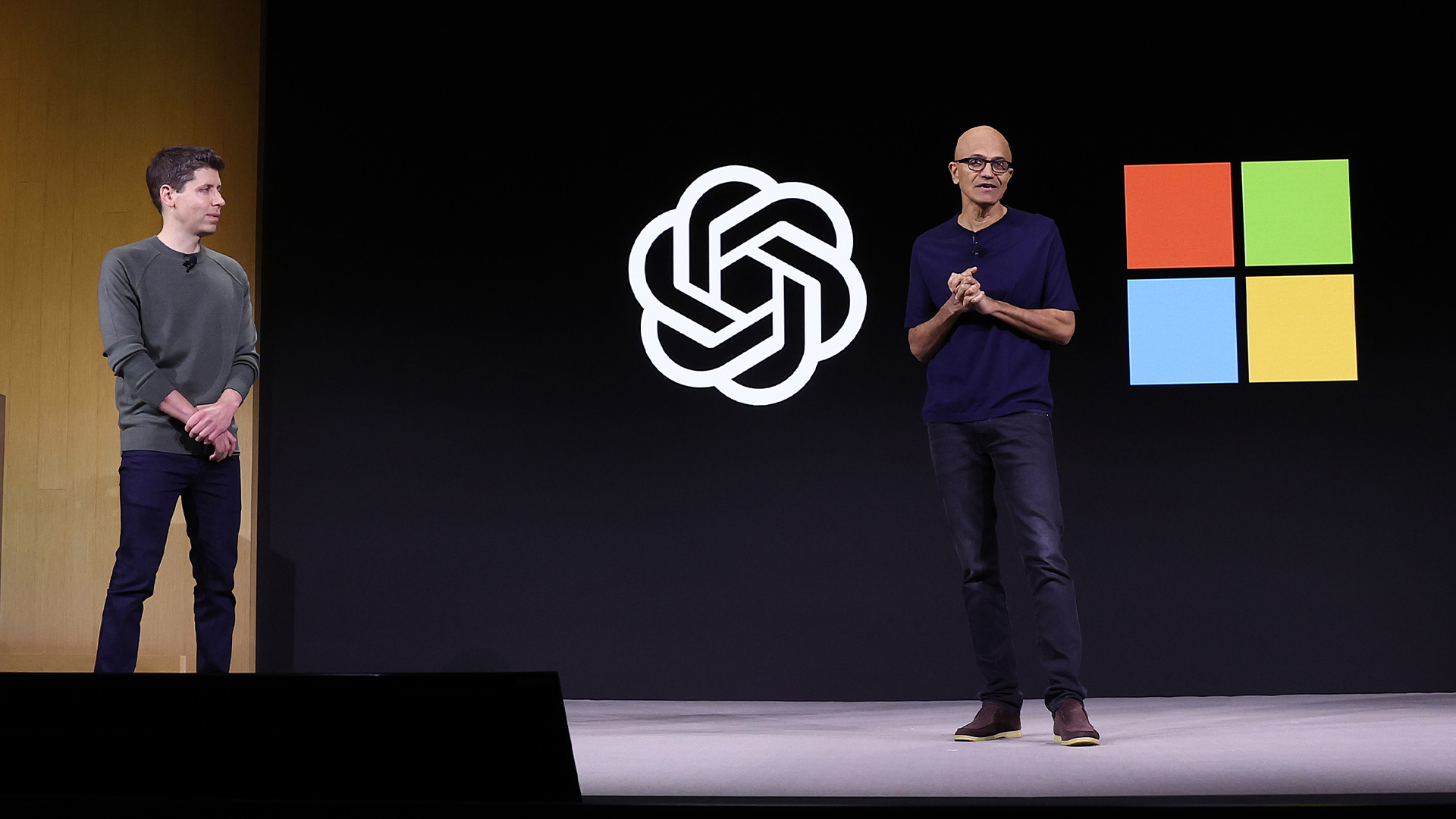 Is the honeymoon period over for Microsoft and OpenAI? Strained relations and deals with competitors spell trouble for the partnership that transformed the AI industry
Is the honeymoon period over for Microsoft and OpenAI? Strained relations and deals with competitors spell trouble for the partnership that transformed the AI industryAnalysis Microsoft and OpenAI are slowly drifting apart as both forge closer ties with respective rivals and reevaluate their long-running partnership.
